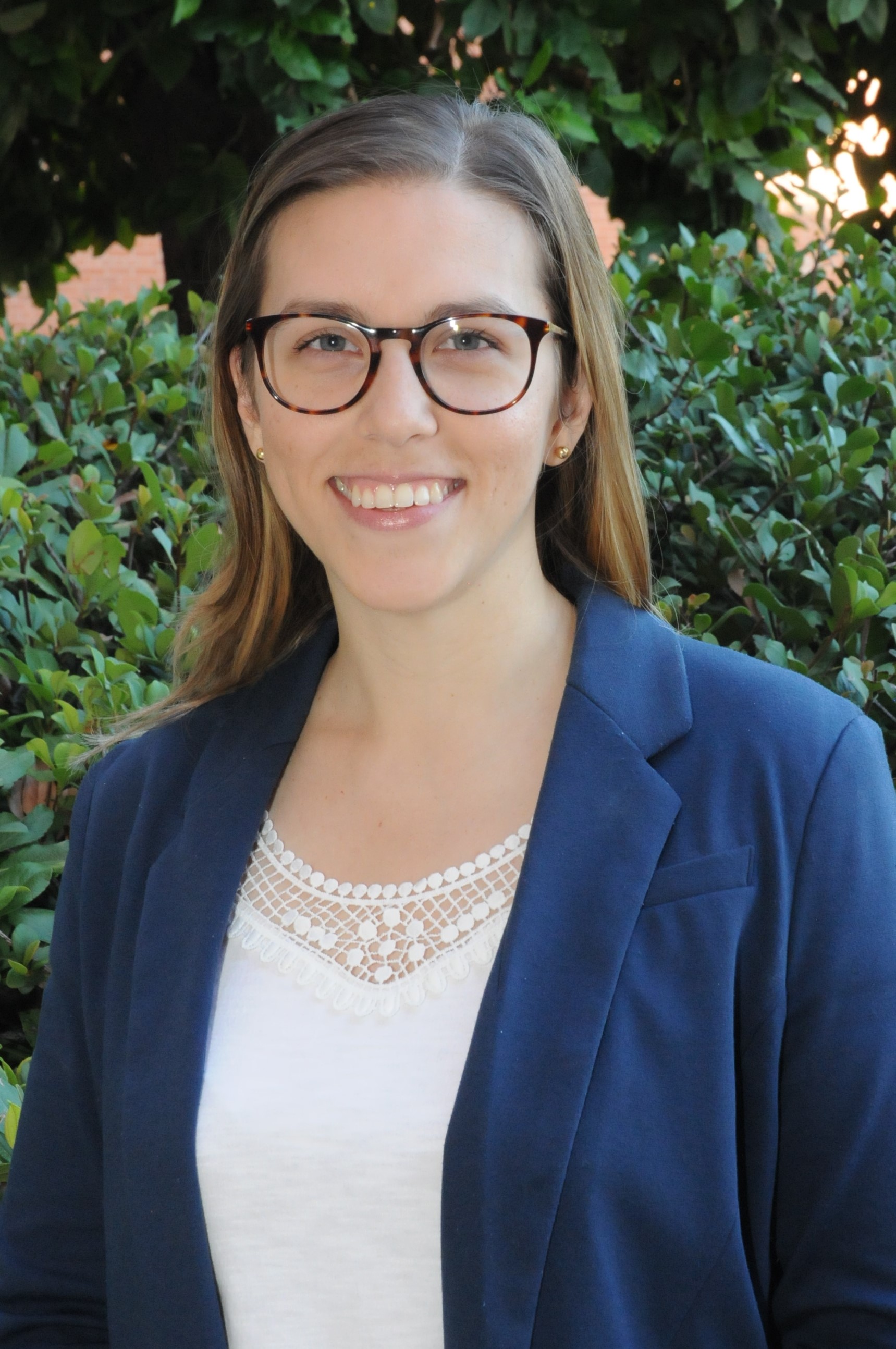
After three years as the Marilyn M. Hitz postdoctoral research associate in the Nebraska Department of Mathematics, Amy Been Bennett has been hired as a new assistant professor of STEM education in the Center for Science, Mathematics and Computer Education. In her new position, which begins Aug. 14, Bennett hopes to build strong collaborative relationships with faculty and teachers across Nebraska and conduct research and outreach across math and science disciplines.
Bennett’s research areas include elementary teacher preparation, mathematical modeling at the K–12 level, and equity in mathematics education. Her research in mathematical modeling stems from the understanding that students can learn math more deeply by engaging in rich tasks that are interesting, relevant, and authentic to them. Bennett said that mathematical modeling is an accessible process for K–12 students and an exciting pedagogical method for teachers to use.
“The authenticity, or ‘messiness,’ of math modeling tasks guarantees that many math concepts will be involved, and other subjects like history, art, and science can be easily incorporated in the lesson,” Bennett said.
After earning a Bachelor of Science in mathematics from UNL, Bennett earned a Master of Science in mathematics and a Ph.D. in teaching and teacher education from the University of Arizona. She began her undergraduate coursework intending to become a high school math teacher, but instead spent her undergraduate years in research courses.
“The prospect of doing research in math for many more years encouraged me to examine what I was really interested in studying, and that was learning how others learn math,” Bennett said.
Bennett described how working with teachers at all levels during graduate school confirmed her career trajectory: “Somewhat to my surprise, I spent the most time working in elementary schools, and I was blown away by the knowledge and skills of elementary teachers as interdisciplinary specialists. Much of my research and teaching interests have remained at the elementary grade level.”
Bennett enjoys incorporating her experience working in elementary classrooms and leading elementary professional development workshops into her teaching. As a postdoc, she gained experience teaching UNL courses for both in-service and pre-service teachers, including one course for in-service K–3 math specialists through the Nebraska Math and Science Summer Institutes. She has also adapted a course for secondary pre-service teachers to focus on mathematical modeling tasks. As an undergraduate student at UNL, she also worked in the CSMCE, making course binders and coordinating the All Girls All Math summer camp.
“I would love to teach other math courses for teachers, but I’m very interested in integrated STEM courses,” Bennett said, “I always enjoy teaching in-service teachers because they are so motivated and knowledgeable about their profession!”
Originally from McCook, a small town in southwestern Nebraska, Bennett has had an affinity for math from a young age. She recalls enjoying math puzzles and games and discovering that she could use visualization as a tool for solving problems.
“I remember my mom using M&Ms as math manipulatives to help me understand the operation of subtraction. After that, I realized that if I visualized a problem and thought about it for a while, I could figure it out,” Bennet said, “and that was very exciting to me.”
An encouraging math teacher helped Bennett realize that learning and teaching math could lead to a fulfilling career.
“I wrote, very precociously, in my 8th grade yearbook, ‘I want to get my ‘Doctor’s Degree’ as a professor in mathematics.’ I had a lot of great mentors along the way to getting my ‘doctor’s degree,’” Bennett said.
Bennett continues to use the tool of visualization in her teaching by solving problems using others’ perspectives and strategies. Her favorite lessons to teach involve discussing seemingly simple topics from conceptual perspectives.
“I love taking a mathematical concept like the equals sign or the distributive property and having a conversation where we ask ‘why?’ at every step,” Bennett said, “I enjoy any lesson that causes students to pause and consider what they’ve learned in the past and why it makes sense (or not) now.”
As a faculty member in the CSMCE, Bennett plans to continue helping with events such as Math Day and collaborate with other faculty, such as those in DBER and Nebraska Extension.
Bennett also expressed her hope to carry on the CSMCE tradition of achieving grants for education in STEM: “I’m interested in working with teachers as fellow collaborators and investigators and plan to apply for Research Experiences for Teachers grants, which could be adapted to variety of STEM topics.”
Specifically, Bennett hopes to conduct research with teachers on how best to support rural and first-generation students as they transition through the K–12 years and into higher education. She also plans to address issues of diversity, equity, and inclusion in STEM education, which could include partnerships with teachers or outreach to high schools to encourage students from historically marginalized groups to become STEM majors and future teachers.
Looking to the future, Bennett said, “I plan to continue and increase the efforts of the CSMCE to address issues of diversity, equity, and inclusion in STEM education through research and outreach.”
– Meghan Leadabrand, CSMCE project coordinator/admin tech